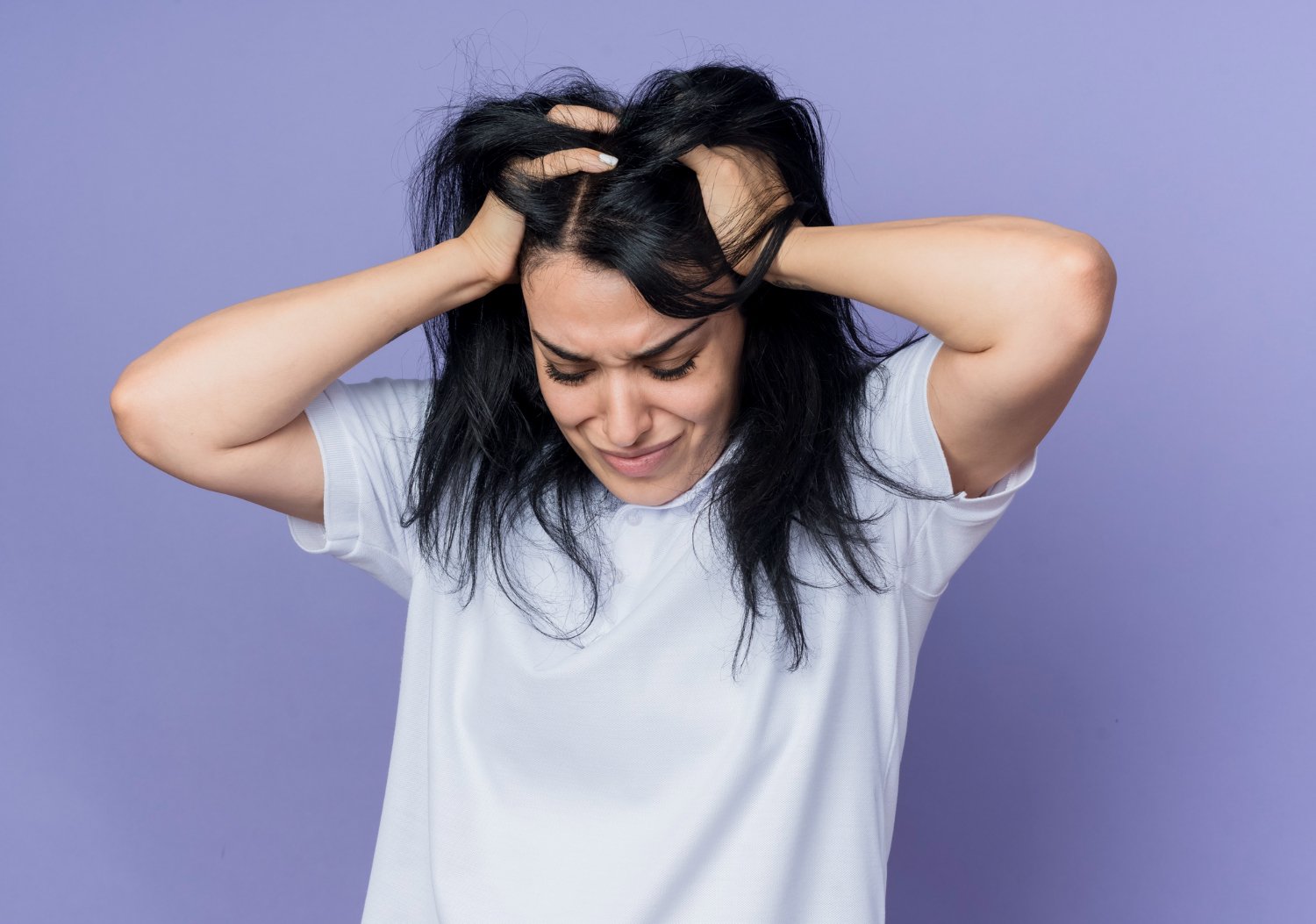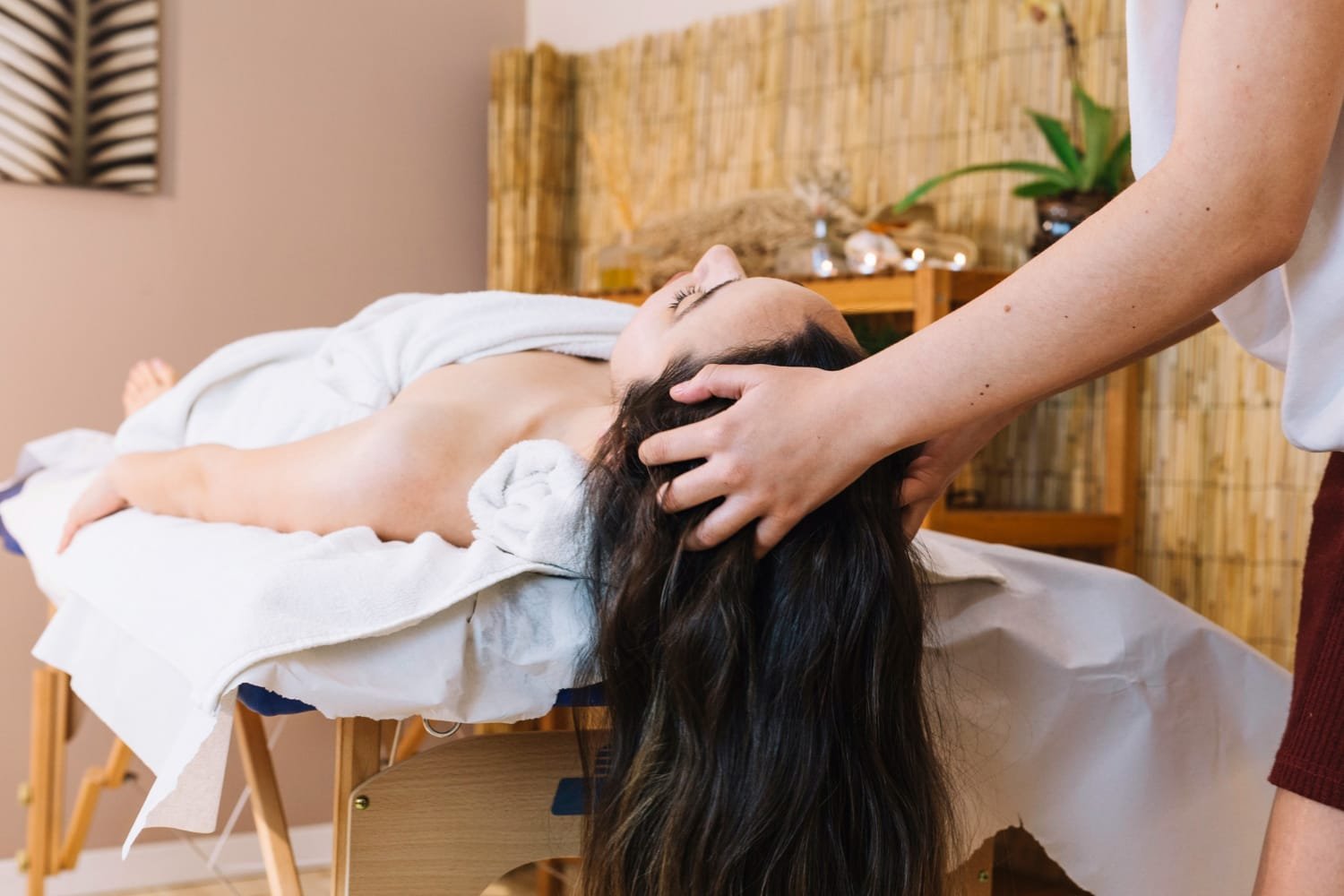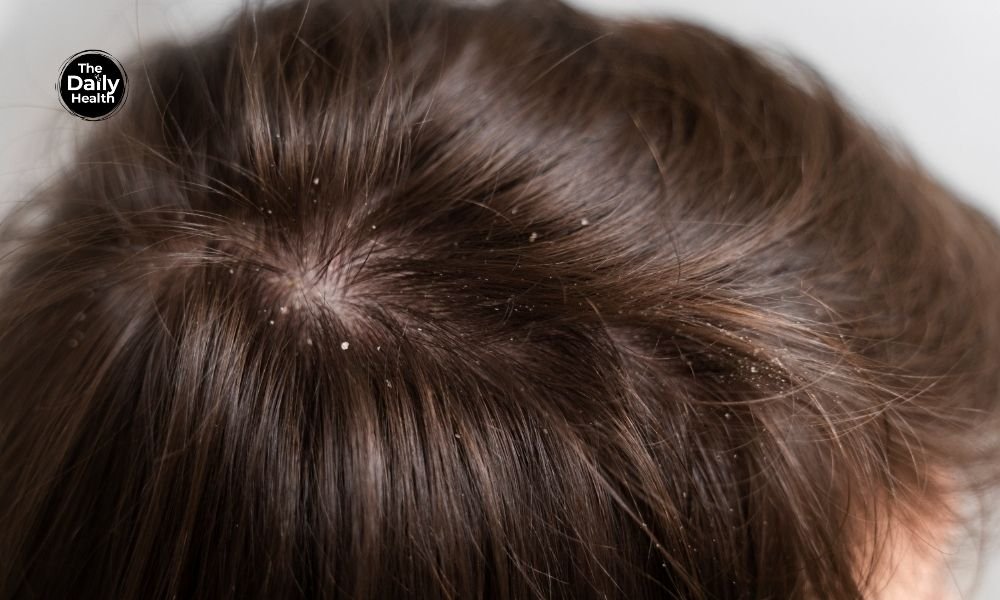Treat Itchy Scalp At Home Naturally: An itchy scalp can be frustrating and uncomfortable, affecting both your confidence and hair health. Many factors can trigger scalp itchiness, including dryness, dandruff, fungal infections, or reactions to hair products. While some cases may require medical attention, most itchy scalp problems can be managed naturally at home.
Using simple remedies and maintaining proper scalp care can help soothe irritation, reduce flakiness, and support stronger, healthier hair. In this article, we will explore the best natural remedies to treat an itchy scalp at home and how you can include them in your regular hair care routine for long-lasting comfort and healthy hair.
Understanding the Causes of an Itchy Scalp

Before jumping into remedies, it’s important to understand why your scalp might be itching in the first place. Common causes include dandruff, which results from an overgrowth of yeast on the scalp; dry scalp due to lack of moisture; buildup from hair styling products; or reactions to harsh shampoos.
Sometimes, conditions like psoriasis, seborrheic dermatitis, or eczema can also make the scalp itchy. Stress, poor diet, and weather changes can worsen the issue as well. Knowing the root cause helps in choosing the right natural remedy that works best for your situation.
Best Natural Remedies To Treat Itchy Scalp At Home

Coconut Oil Massage
Coconut oil is one of the most popular natural remedies for itchy scalp because of its moisturizing and antifungal properties. It helps hydrate a dry scalp and prevents flakiness. Regular coconut oil massage also improves blood circulation, which promotes healthier hair growth. Simply warm a small amount of coconut oil, massage it gently into your scalp, and leave it on for at least 30 minutes before washing it off with a mild shampoo. For best results, you can keep it overnight and wash the next morning. Over time, this reduces dryness, soothes irritation, and makes your scalp healthier.
Aloe Vera Gel
Aloe vera is known for its cooling and soothing qualities, making it perfect for calming an itchy scalp. It also contains anti-inflammatory and antifungal properties that help fight dandruff and scalp irritation. Fresh aloe vera gel can be applied directly to the scalp. Leave it on for about 20 to 30 minutes before rinsing off with lukewarm water. Using it twice a week helps reduce redness, itching, and dryness effectively.
Tea Tree Oil
Tea tree oil is a powerful natural antiseptic and antifungal remedy that can fight the root cause of itchiness, especially if it is due to dandruff or fungal infections. However, since it is very strong, it should always be diluted with a carrier oil like coconut oil or olive oil before applying. Mix a few drops of tea tree oil with two tablespoons of a carrier oil, massage gently onto the scalp, and wash it off after 20–30 minutes. This helps in clearing dandruff, reducing inflammation, and giving your scalp a refreshed feeling.
Apple Cider Vinegar Rinse
Apple cider vinegar (ACV) helps balance the scalp’s pH level and remove product buildup that often causes itchiness. It also has antibacterial and antifungal properties. To use it, mix equal parts of apple cider vinegar and water, and rinse your scalp with this solution after shampooing. Leave it for a few minutes and then wash with plain water. Regular use once a week can control dandruff, reduce itchiness, and make your scalp feel clean and healthy.
Neem Leaves Treatment
Neem has been used in traditional remedies for centuries due to its powerful antifungal, antibacterial, and anti-inflammatory qualities. Boil a handful of neem leaves in water, let it cool, and use this water to rinse your scalp. You can also grind the leaves into a paste and apply it directly to your scalp. Neem not only relieves itching but also prevents dandruff and keeps the scalp infection-free.
Olive Oil for Deep Moisture
Olive oil is rich in antioxidants and vitamin E, which deeply nourish and hydrate the scalp. It is especially useful if your itchiness is caused by dryness. Warm some olive oil, massage it gently into the scalp, and leave it overnight before washing. This treatment restores moisture, strengthens hair roots, and reduces flaky patches. Regular use also improves scalp elasticity and prevents further irritation.
Baking Soda Paste
Baking soda is another easy home remedy to relieve scalp itchiness, especially if it is due to excess oil or fungal growth. It helps exfoliate the scalp and balance pH levels. Make a paste using baking soda and water, apply it to the itchy areas, and leave it for 10–15 minutes before rinsing. However, since baking soda can be drying, it is best to follow this treatment with a light oil massage to restore moisture.
Honey Mask
Honey is a natural humectant, meaning it locks in moisture and soothes the skin. It also has antibacterial properties that fight scalp infections. Mix raw honey with a little warm water and apply it directly to the scalp. Leave it for about 20 minutes and wash off with mild shampoo. This remedy not only relieves itchiness but also makes the hair softer and shinier.
Lemon Juice
Lemon juice contains citric acid, which can help control dandruff and reduce itchiness caused by fungal overgrowth. Simply squeeze fresh lemon juice and apply it directly to the scalp, or dilute it with a little water if you have sensitive skin. Leave it for 5–10 minutes before rinsing. Regular use once a week helps control dandruff flakes and keeps your scalp fresh.
Lifestyle and Hair Care Tips

To prevent and manage an itchy scalp effectively, follow these simple tips:
-
Use a mild shampoo: Choose shampoos free from sulfates, parabens, and harsh chemicals to avoid further irritation.
-
Avoid scratching: Scratching can damage the scalp and lead to infections or hair loss.
-
Maintain cleanliness without overwashing: Wash your hair regularly but not excessively, as overwashing can strip natural oils and worsen dryness.
-
Eat a balanced diet: Include foods rich in vitamins, minerals, and omega-3 fatty acids to support scalp and hair health.
-
Stay hydrated: Drinking enough water keeps your scalp moisturized and healthy.
-
Manage stress: Practice relaxation techniques like deep breathing, meditation, or light exercise, as stress can trigger scalp problems.
When to See a Doctor
Though natural remedies work for most people, if your itchy scalp persists for a long time or comes with symptoms like severe redness, pus-filled bumps, or hair loss, it is important to consult a dermatologist. Conditions like psoriasis or fungal infections may need professional treatment. Early diagnosis ensures faster recovery and prevents complications.
Conclusion:
An itchy scalp may seem like a small issue, but it can affect your comfort, confidence, and overall hair health. Instead of relying on chemical-heavy solutions, simple natural remedies can provide effective and long-lasting relief.
Coconut oil, aloe vera, tea tree oil, apple cider vinegar, neem, olive oil, and other home-based treatments are safe and easy ways to calm your scalp and restore balance. With consistency, patience, and healthy lifestyle habits, you can enjoy a clean, itch-free scalp and stronger, shinier hair.
Images: iStock
Benefits Of Rice Water For Hair And How To Use It?
